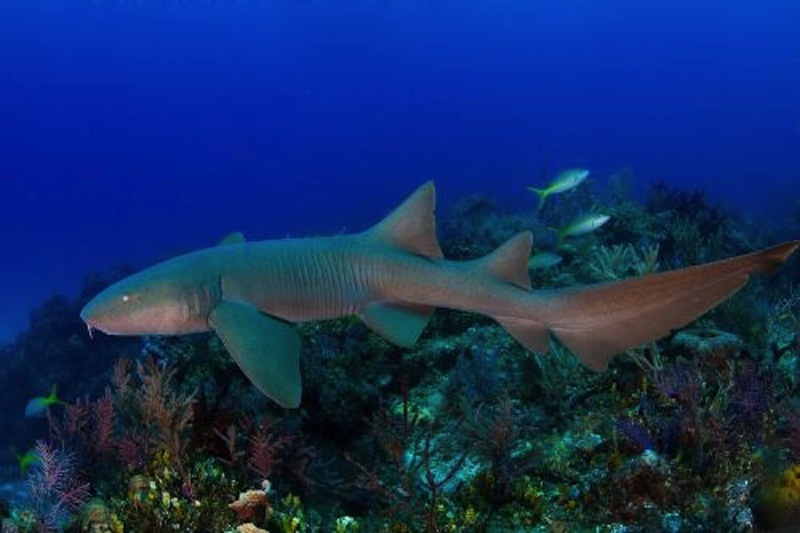Shark Sanctuary Established in British Virgin Islands

What's the best place to live if you're a shark? (Hint: It's also a pretty great place to live if you're a human.) The British Virgin Islands. The archipelago recently became the third Caribbean territory to declare its waters a safe haven for sharks.
The decision to establish a shark sanctuary in the British Virgin Islands was made official on May 22 by cabinet members of the British-controlled territory. The designation prohibits commercial fishing of all shark and ray species throughout the territory's 60 or so islands and islets.
The ban on shark fishing covers nearly 31,000 square miles (80,117 square kilometers) of water and also prohibits the sale and trade of shark products on the islands. [On the Brink: A Gallery of Wild Sharks]
In 2013, government officials, business leaders and representatives from private organizations gathered to establish guidelines for protecting marine and coastal environments in the Caribbean. The summit was part of the Caribbean Challenge Initiative, a conservation-focused program that was launched in 2008.
The British Virgin Islands now join the Bahamas and Honduras — which both established shark sanctuaries in 2011 — in a shared initiative to safeguard the region's sharks.
"Our people are committed to sustainably managing our resources," Kedrick Pickering, the British Virgin Island's deputy premier and minister for natural resources and labor, said in a statement. "We recognize that sharks are important to our oceans and our reefs and that the best way to manage their populations is to let them fulfill their ecological role as apex predators."
The British Virgin Islands are home to a variety of shark species, many of which are classified as threatened, or near-threatened, with extinction, according to the International Union for Conservation of Nature's Red List of Threatened Species. Some of the sharks that inhabit the waters around the island chain include the oceanic whitetip, scalloped hammerhead, tiger and Caribbean reef sharks.
Sign up for the Live Science daily newsletter now
Get the world’s most fascinating discoveries delivered straight to your inbox.
As apex predators, these sharks play an important role in maintaining the balance of the ocean environment by regulating the variety and abundance of species in the food chain, researchers have said. Furthermore, in places where the local economy depends on the commercial fish trade — such as the British Virgin Islands — sharks are instrumental in maintaining healthy populations of commercially important species of fish.
Despite their role as guardians of entire marine ecosystems, a 2013 study, funded in part by the Pew Charitable Trusts, found that an estimated 100 million sharks are killed each year in commercial fisheries. This same study linked a dwindling shark population to the collapse of marine habitats.
Imogen Zethoven, director of global conservation for the Pew Charitable Trusts, said the British Virgin Islands should be applauded for protecting its valuable shark population, and expressed hope that other nations will soon follow in the island territory's footsteps.
Several other nations and territories have already committed to the Caribbean Challenge Initiative, including the Dominican Republic, Grenada, Jamaica, Puerto Rico, St. Kitts and Nevis, St. Lucia and St. Vincent and the Grenadines. All parties have agreed to establish regional shark protections by May 2015, according to Pew officials.
Follow Elizabeth Palermo on Twitter @techEpalermo, Facebook or Google+. Follow LiveScience @livescience. We're also on Facebook & Google+. Original article on Live Science.

Elizabeth is a former Live Science associate editor and current director of audience development at the Chamber of Commerce. She graduated with a bachelor of arts degree from George Washington University. Elizabeth has traveled throughout the Americas, studying political systems and indigenous cultures and teaching English to students of all ages.










